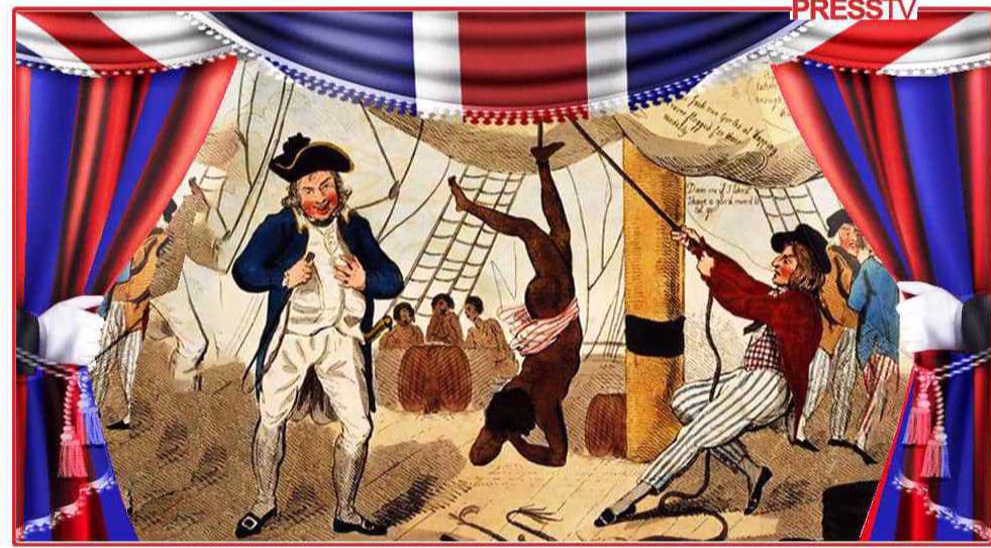
Jamaica will petition the Queen for slavery reparations
Kingston, July 11 (RHC)-- In recent weeks, demands for reparations to be distributed to the descendants of African slaves have been growing ever louder, while millions around the world remain increasingly cognizant of the modern day impacts of systemic anti-Black racism continuing to be a lived reality for those living in countries poisoned by long-lasting and modern legacies of colonialism and slavery.
Firstly, Chief of the United Nations Human Rights Council Michelle Bachelet, off the back of a recent report, emphasized that countries once involved in the slave trade and slavery, which have since failed to root out demonstrable structural racism, should stop denying it and ‘start dismantling it’.
Among the 60 or so countries named in the report were the United Kingdom, and the United States. And although both the U.S. and the UK are unlikely to acknowledge such calls, much less act on them, nonetheless, the comments made by Bachelet reflect an undeniable growing tide of support for what is for many, the only real tangible form of restorative justice.
But despite this, millions in the US and UK themselves, continue to indulge in denialism, false myths, fabrications and fantasies about real history. Many in the UK especially, often boast about Britain’s role in ‘ending’ the slave trade, when in reality, serious historians have highlighted countless times, Britain’s leading role in the shameful chapter of the past, and the real motivations behind European powers eventually ceasing to take part in slavery. Other countries however, are calling things exactly as they see them.
That’s why, in addition to the recent UN report, many will be applauding the fact that Jamaica’s Minister for Culture Olivia Grange has suggested that the Jamaican government will soon petition the British Queen for reparations for Jamaica, apparently with the backing and support from Jamaica’s political opposition.
And it’s not a new campaign. For years, Jamaica has been highlighting the need for compensatory justice. Jamaica was once a British colony and between the mid-1600s and 1840s it’s estimated that more than 3 million Africans were kidnapped as captives and forced into brutal slavery and terrorized.
The denialism of these facts however runs deep. When former British Prime Minister David Cameron visited Jamaica in 2015, at the time the first UK premier to do so for many years, he avoided questions about reparations, talked about Britain’s ‘pride’ in having apparently ended the slave trade, and suggested that Jamaica ‘move on’ from the past.
Quite apart from the fact that Jamaica, like many other countries feels the impact of slavery on a number of levels, among David Cameron’s own family and descendants were the beneficiaries of the compensation which was paid to slave owners by the government following emancipation. The sum of money borrowed by the government from the treasury to pay more than 40,000 slave owners for their loss of ‘property’ was so large that British taxpayers were continuing to pay the debt up until 2015. The loan borrowed by the government to pay slave owners in the British colonies was the equivalent of roughly £20 billion in today’s money according to experts. The payoff was the biggest in British history until the bailout of the banks during the 2009 financial crash.
What this shows, is that governments from nations which were built and financed by slavery can dig deep and find money when there is the political will and the desire to do so. Slave owners in the British colonies were compensated for their loss of property, but the slaves themselves did not receive anything.
The Queen is head of the Commonwealth and remains the Queen of Jamaica. Jamaica remains deeply in debt to the IMF, of which Britain is a member.
It is simply not acceptable, that this state of affairs continues while Britain still benefiting from all of the wealth accumulated through slavery, represented by a Royal Family symbolizing an empire financed by stolen wealth, remaining one of the richest institutions as the country turns its back on Jamaica while essentially being told to “get over” slavery.
Britain, like the United States has a moral and many would argue legal obligation to pay what they owe to begin to repair the devastating and ongoing effects of the period of slavery and to make good on their promises and claim to believe in justice. The calls from the world to pay reparations will likely be ignored by Britain and the US. But those calls, will only continue to grow louder, and rightly so.

